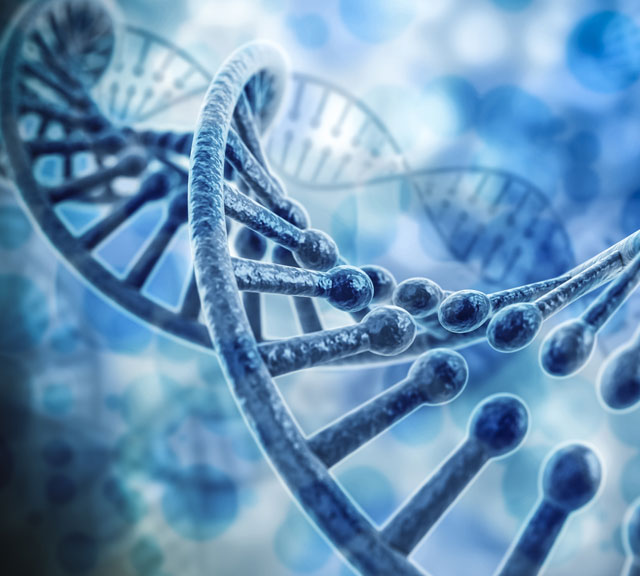The Lowdown On Lynch Syndrome And Cancer

Find Your Perfect Match
Answer a few questions and we'll provide you with a list of primary care providers that best fit your needs.
It’s true. Some cancers can be genetic. For families that possess a genetic mutation that causes Lynch syndrome, the risk for colorectal (of the colon and rectum), uterine, ovarian and other cancers is increased.
Julie Sawyer, MS, LGC, a Premier Health genetic counselor in the Cancer Genetics Program, explains that while genetics can play a role in cancer development, “Lynch syndrome and inherited cancers in general are not that common.”
If you’re concerned about your family’s cancer history and your cancer risk, Sawyer says genetic counseling can put those worries in perspective. “It can be comforting for people to go through the process of examining family history and calculating their cancer risk and finding out it’s better than they thought it was.”
What is Lynch Syndrome?
Lynch syndrome is an inherited condition that gives a person a higher risk of cancers of the digestive tract, gynecologic tract and other organs. It’s caused by a mutation in the genes that normally help repair DNA damage, which then allows abnormal cells to divide and increase the risk for cancer.
Lynch syndrome occurs in both men and women of all racial, ethnic and cultural groups.
Traditionally, colorectal cancer has been heavily associated with Lynch syndrome. But it is not always present or part of family history in people with the syndrome. “Some families will have more of a tendency to have colon cancer in the family while others have more uterine or ovarian in theirs,” Sawyer explains.
About 3 to 5 percent of all cases of colorectal cancer are thought to be due to Lynch syndrome. Most colorectal cancer is sporadic, occurring by chance with no known cause.
What Cancers Occur With Lynch Syndrome?
The American Society of Clinical Oncology outlines these general cancer risks for people with Lynch syndrome:
Colorectal cancer* - Up to 80 percent
Endometrial (uterine) cancer - 20 to 60 percent
Ovarian cancer - 9 to 12 percent
Stomach cancer - 11 to 19 percent
* Regular screenings with colonoscopy significantly reduce this risk.
Other cancer risks may include liver/bile duct (hepatobiliary tract), urinary tract, small bowel (intestines), skin, prostate, breast, pancreatic and kidney, as well as brain or central nervous system tumor.
People with Lynch syndrome also are at an increased risk of developing multiple cancers during their lifetime.
Who Should Be Evaluated for Lynch Syndrome?
Lynch syndrome is rare and is not present in most families. But if your personal or family history includes the following, you may want to consider consulting a genetic counselor:
- Colon or uterine cancer at an early age (diagnosis before age 50)
- Ovarian cancer at any age
- Colon cancer that occurs on the right side (the left side is more common in the general population)
- Multiple Lynch syndrome-related cancers in the same person
“Our goal is to test for it in families that are showing us there may be more to their family story of cancer than just sporadic cancer in older relatives,” Sawyer notes. “If you’re reading information about inherited cancers, and it hits home and feels like they’re talking about your family, then let’s talk.”
“Lynch syndrome and inherited cancers in general are not that common.”
How Does Genetic Screening Work?
Sawyer explains that genetic counseling is the first step, followed by genetic testing if appropriate. You can typically expect the following process:
- Review family history to identify key features or patterns of a genetic cancer risk, such as age at cancer onset and the types of cancers within the family
- Review personal health history, such as uterine or breast biopsies
- Provide personal risk calculation via cancer-specific risk calculators
- Review pros and cons of genetic testing and weigh benefits and limitations
- Perform genetic testing, if appropriate, to determine gene mutations
- Develop personalized strategy for managing cancer risks (e.g., lifestyle changes, earlier/more frequent cancer screenings, medications, surgery.)

Genetic testing can have significant implications, Sawyer says. “It deserves thought and careful consideration for what it can tell us and what it can’t. It’s very specialized, so it’s not a routine test.”
Insurance often covers genetic testing if you’ve been identified as having a defined level of risk, Sawyer says.
Try These Cancer Prevention Tips
If your family is more typical with little cancer history, as well as cancers diagnosed at later ages, Sawyer says you’re better off focusing on good overall health habits that are more personal to you. She recommends:
- Healthy plant-based diets
- Regular exercise
- No smoking
- Recommended screenings (colonoscopy beginning at age 45; mammograms at age 40)
- Body awareness for recognizing warning signs of cancer
Find Your Perfect Match
Answer a few questions and we'll provide you with a list of primary care providers that best fit your needs.
Source: American Society of Clinical Oncology; National Institutes of Health; Julie Sawyer, MS, LGC, Cancer Genetics Program, Premier Health


